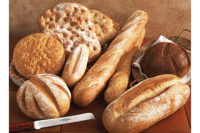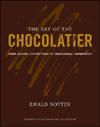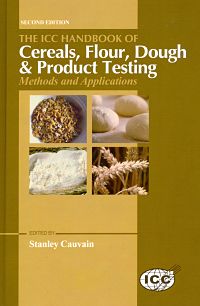The Changing World Of Baking
Just as in America, the world baking industry is responding to ever-mobile and time-pressed consumers who want more upscale, portable and convenient snacks and baked goods.
Throughout the international baking industry, the bread, cake and pastry categories are going through yet another phase of intense change.
Like their U.S. counterparts, European bakers have been seeing a slump in the amount of bakery products consumed at home during the last few years. Such a decline, however, is being offset by increased purchases of on-the-go breads, easy-to carry sandwiches, between-meal snacks and bite-sized sweet goods.
German baking organizations, which sponsor the iba 2006 World of Baking show that runs October 3-9 in Munich, attribute this trend to the burgeoning number of single-person households in which traditional meals have gone by the wayside. In addition, demanding workloads and adventuresome travel schedules have made European eating habits more like those in the United States.
As a result, conventional bread sales have flattened and even softened in some markets. At about the same time, snacking has become a worldwide phenomenon. Specifically, European bakers are seeing a dramatic shift toward the production of handheld meals similar to Hot Pockets as the consumption of smaller entrees becomes more omnipresent. In addition, more retailers are offering food at sandwich counters and self-service snack bars where ever-mobile Europeans can grab a quick, affordable bite.
Even convenience stores, which once were looked down upon as stereotypically symbolic of the American rat race, have popped up throughout Europe and elsewhere at an increasingly rapid pace over the last few years. Although many of them might publicly deny it, consumers are even taking a liking to strip malls, fast food outlets and one-stop shopping centers that sell everything from fine wines and gourmet food to potato chips, beer and gasoline.
Upscale Goes Global
Throughout other parts of the world, the baking industry is experiencing a resurgence, as fine bread, gourmet cakes and decadent desserts gain popularity in nations whose populations have not predominantly eaten wheat-based bakery products until now.
In Asia, for example, the number of people who have acquired a taste for European bread, cakes and pastries is increasing, according to iba 2006 organizers. Such a trend reflects the globalization of the world economy and the impact of international travel on consumers’ consumption patterns.
At the same time, this movement is not a one-way street. Even in European bakeries, typical American specialties such as doughnuts, bagels and muffins are being produced. Mediterranean flatbreads and Mexican tortillas can be found everywhere from Denmark to India, while many Australian and Japanese bakeries are producing traditional baguettes and croissants that would make even the most finicky French baker sit up and take notice. It’s not even unusual to find an authentic Greek restaurant in Holland or an Italian eatery in Prague. When it comes to baking, there seem to be no borders.
For more information about global trends, visit www.iba.de.
U.S. Pavilion 90% Sold Out
With six months remaining before the start of iba 2006, “The World Market for Baking,” the United States Pavilion is nearly sold out.
“We’ve had a tremendous response,” says Jerry Kallman, president of Kallman Associates, the U.S. representative for iba 2006, “and with such major industry players as American Pan, AMF Bakery Systems, Burford, Bettendorf Stanford, C.H. Babb, Formost, Lawrence Equipment and Moline participating, we know the U.S. baking industry will be well represented.”
The show will take place October 3-9 at the Munich Trade Fair Center. For exhibitor or visitor information, contact Mark Alt at mark@kallmanexpo.com or 1-201- 652-7070, ext. 111.
Plan Ahead for iba 2006
Because iba 2006 begins on the cusp of Oktoberfest, bakers are strongly advised to line up their travel arrangements way ahead of the show, which runs October 3-9 in Munich.
The show will take place daily from 9 a.m. to 6 p.m. in 10 halls of the New Munich Trade Fair Centre. Tickets cost 22 euros for a one-day pass, 30 euros for a two-day pass and 54 euros for a full pass. All tickets to the fair include free travel to the show via local public transportation, which is the best way to get around the city, considering the high taxi fares and difficulty in finding parking. Just take the U2 subway to the “Messelgelande” stop.
For show pre-registration, hotel and exhibit information, visit iba 2006’s multilingual Web site at www.iba.de. This official site also has information about transportation, booking hotels, finding restaurants, sightseeing and even scheduling conference rooms to hold business meetings during iba.
There also are other services available to assist you in reserving your hotel and booking other travel arrangements. Packages can be arranged through “smart and more GmbH” by visiting www.smartfairs.de or by e-mailing fairs@maritz.de.
For hotels, iba 2006 organizers suggest you visit www.hrs.de or e-mail a request to office@hrs.de. Those attendees who prefer bed and breakfasts can visit Check In! Zimmerservice at www.checkinmuenchen.de, or e-mail the group at infor@checkin-muenchen.de.






